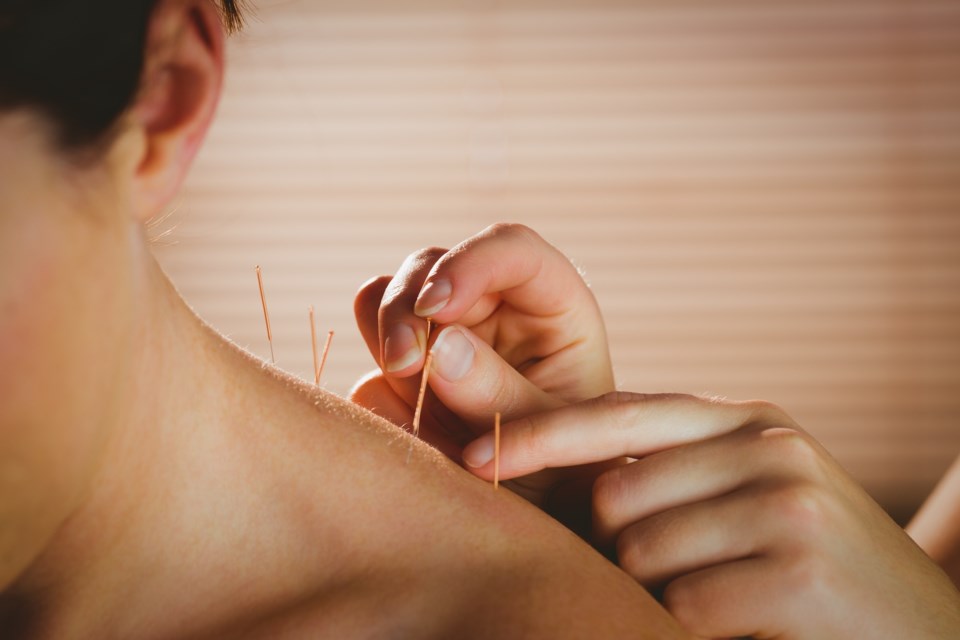Those looking for a new way to boost their overall health and well-being may want to look to the past, says a Burlington acupuncturist.
Acupuncture, the practice of inserting very thin needles into precise points of the body, dates back over 2,000 years. The body has thousands of acupuncture points connected by pathways, or meridians, which create an energy flow through the body that is key for overall health and well-being.
The specific pressure points are believed to stimulate the central nervous system, releasing chemicals and encouraging the body’s natural ability to heal itself. If this
energy becomes blocked, it can cause imbalance in the body and lead to illness.
“Acupuncture works mainly through two systems: the nervous and circulatory," explains Francine Dixon, acupuncturist at Pillars of Wellness in Burlington. "It reboots the nervous system and helps to improve blood circulation in the body. That’s really important for healthy aging and longevity."
Acupuncture can help repair injuries, reduce pain, increase the production of nitrite oxide, increase blood flow and regulate body temperature, adds Dixon.
"It’s one of the best ways to move blood to any part of the body that is in pain or unhealthy."
But acupuncture isn’t just for pain and physical health; it’s also good for mood and mental health, she adds.
"It helps regulate the body’s production of stress hormones by accessing the body’s own dopamine and serotonin, the happy hormones that help regulate stress and mood," says Dixon. "This is very helpful for mental health and for people with addiction withdrawals. That serotonin boost really does change the mood. When you don’t have enough serotonin, there’s an increase in anxiety and even depression.”
The needles used in acupuncture are extremely thin and typically cause little discomfort. Many people describe a slight tingling or mild aching sensation upon insertion. For those uncomfortable with needles, there are other modalities like cupping, acupressure and guasha, a smooth-edged tool shaped like a spoon to help relieve muscle tension.
“As we age, we respond to stress in our environment. Hormones change with us too. What our aim is with traditional Chinese medicine is to optimize the organs and help rejuvenate and restore the system,” says Dixon. “The head, hands, feet, and even the ear are some of the methods we use specifically for anxiety. We have points in the feet that help release stress and tension. Heat rises to the head, so we try to bring everything down to the feet.”
Dixon says that many people will notice some relief right away with their first treatment. Those who come in feeling heavy and wound up may leave feeling lighter, more settled and relaxed. But for this to continue, says Dixon, there needs to be follow-up sessions and home care such as breathing exercises and meditation.
Dixon also talks with her clients about how diet affects mood and the types of food that can help.
“Acupuncture is just stimulating the nervous system to allow the body to naturally release hormones that help it work on its own. I’m a facilitator. I put the needles there, and then the body does what it’s naturally supposed to do,” she says.



